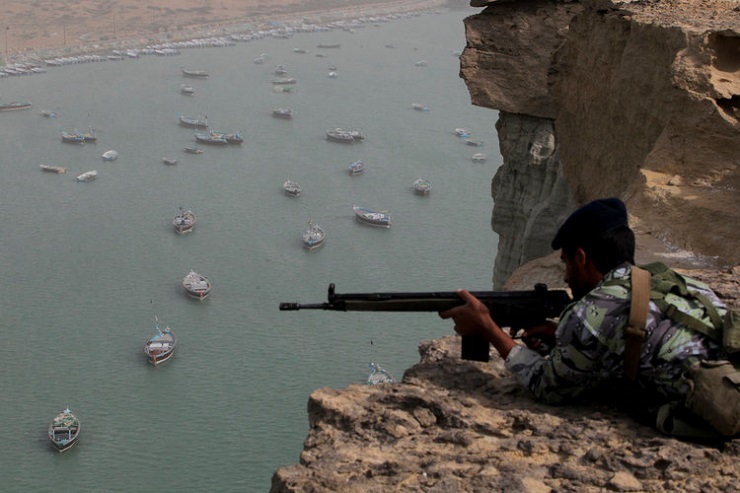With the US president Donald Trump’s tweet of mass destruction and with Iran’s General Soleimani hitting back, the war of words has intensified in a big way between Iran and the US. Soleimani’s verbal attack symbolizes many things. Whereas it reflects the highly charged anti-US mood currently prevailing in Iran, it also signifies that the cold-war may actually turn into a hot-war in the wake of an all out US attack, military or economic, on Iran. And if the push comes to shove ever, Iran’s best weapon will be its control over the Strait of Hormuz and its ability to cripple the West with a simple blockade of the Strait. While we all know how crucial the Strait is in global supply of oil, the reason why this factor has re-surfaced as the deciding factor is the extremely anti-US mood in Iran, coupled with the fact Iran’s civilian government led by Rouhani is facing a political backlash for trusting the US, proving the Soleimani led revolutionary guards right in terms of not trusting the US for its pledges. It explains why it is Soleimani who is already at the forefront.
Surely, Iran’s threat to block the Strait would never have come if the US had not decided to tighten the screw on Iran’s oil with the ultimate intention/objective of blocking its supplies to absolutely cripple its economy and force a regime change from within through a sponsored uprising.
Since the purpose remains regime change in Iran and since the new US sanctions are going to be a lot or more extensive and harder, Iran, sensing the game, might be forced to take measures to match the US actions. Strait of Hormuz, therefore, becomes a viable, although dangerous, action point.
Iran, as such, is upping the ante to play a tit for tat game, and is perfectly poised to do so without having to face an international backlash and without violating any signed rules and laws even. With incoming vessels taking North and East routes to access the Persian Gulf, they will be navigating Iran’s territorial waters, which means that Iran, in theory, is safely positioned to block the use of the Strait. And while Iran is a signatory to the 1982 United Nations’ Convention on the Law of the Sea, its parliament has never actually approved it, meaning thereby that the possibility of Iran using the Strait as a weapon is very much open and is real enough to be taken into account for the US policy makers when deciding an economic/financial/oil-blockade attack on Iran.
In the event of harsh oil restrictions and sanctions, Iran would want to make sure that they are not the only ones to suffer. In fact, this is precisely the message Iran’s top officials have been giving in recent days: Starting from the supreme leader himself who said in response to Rouhani’s threat of blockade that “if Iran’s oil export is blocked, no other country in the region can export oil either” to General Soleimani, who wrote a letter to Rouhani and said, “your remarks that if the Islamic Republic of Iran’s oil is not exported, there will be no guarantee for export of oil from any other point in this region… is a source of pride and honour.”
That Rouhani, who is otherwise known to make measured diplomatic statements and is a cool customer, has also jumped on the Hormuz blockade bandwagon is a reflection of the political pressure he is facing at home for making the mistake of trusting the US. While the Soleimani led revolutionary guards’ opposition to the deal was never a secret, the US withdrawal has proved them right and made them all the more powerful in terms of influencing Iran’s future of action. Plus, Soleimani is in full symbiosis with Supreme Leader Ayatollah Khamenei, who himself doesn’t trust the US.
With Rouhani now feeling the pressure of an (economic) war and politically on back-foot, with the revolutionary guards already on the forefront and with the revolutionary guards actually controlling the Strait, the context for a real blockade seems to exist like never before.
Political pressure on Rouhani has brought him well in line with the position the supreme leader and revolutionary guards have vis-à-vis the US. They now agree that any negotiation with Washington is futile. Iran’s Foreign Minister Javad Zarif provided the coup de grace, tweeting that Iran had ‘lasted millennia and had seen many empires fall.’
Therefore, given Iran’s highly-charged internal defiant mood, anyone hoping in Washington that Iran would capitulate has to be naïve enough and ignorant of Iranian mind-set that has a history of thousands of years.
Iranians are up to make sure that in the wake of Trump’s all-caps specter, forcing Europe to buy the same caps, similar caps will be put on the Strait as well.
Not to forget, Iran will still continue to export its oil elsewhere as will the countries that currently use the Strait but, obviously, at a much higher cost, exporting a lot lower amount of oil. The US, therefore, is about to start a war that will equally hit its own allies badly. Will it be yet another self-defeating adventurism in the Middle East? Probably, yes.
Salman Rafi Sheikh, research-analyst of International Relations and Pakistan’s foreign and domestic affairs, exclusively for the online magazine “New Eastern Outlook”.

